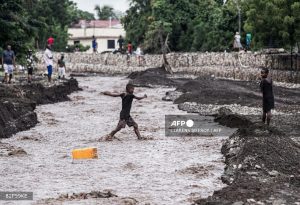
HURRICANE MELISSA: JAMAICA COUNTS HEAVY LOSSES AS DEATH TOLL CLIMBS TO 28
Agency Report

Communities across western Jamaica are reeling from catastrophic devastation after Hurricane Melissa the most powerful storm to hit the island in nearly a century tore through the country, leaving at least 28 people dead and entire towns in ruins.
Prime Minister Andrew Holness confirmed the updated death toll late Saturday on X (formerly Twitter), noting that “there are additional reports of possible fatalities that are still being verified.”
The Category 5 hurricane made landfall last Tuesday with sustained winds of 185 miles (300 kilometres) per hour, flattening homes, uprooting trees, and plunging vast areas into darkness. The storm, now regarded as the most intense to strike Jamaica in 90 years, left a trail of destruction across Westmoreland, Saint Elizabeth, and other western parishes.
AFP correspondents reported scenes of desolation in Whitehouse, where buildings lay in heaps of rubble, roofs were ripped off, and power lines tangled across flooded streets. Many residents remain trapped in isolated communities cut off by debris and floodwaters.
“The scale of destruction is unimaginable,” one emergency official told reporters, describing how rescue teams have struggled to reach remote areas still without power, water, or communication lines five days after the storm.
The government, with support from the Jamaica Defence Force and international partners, has launched search and rescue operations while setting up emergency shelters for displaced residents. Hospitals, schools, and businesses have suffered severe damage, compounding the humanitarian crisis.
Beyond Jamaica, Hurricane Melissa wreaked havoc across the Caribbean killing 31 people in Haiti, including 10 children, and damaging parts of Cuba and the Dominican Republic.
In a statement from Panama, Nahuel Arenas, head of the UN Office for Disaster Risk Reduction (UNDRR) for the Americas and the Caribbean, warned that the storm’s economic toll could equal Jamaica’s annual GDP, estimated at $20 billion in 2024.
“These are losses that will weigh heavily on the economy of all Jamaicans for years and years to come,” Arenas said, calling the hurricane “a generational disaster.”
The United Nations has already allocated $4 million from its Central Emergency Response Fund to support relief efforts, while the World Health Organisation and other agencies have deployed medical teams to assist victims.
UN Secretary-General Antonio Guterres urged the global community to “mobilise massive resources” to help Jamaica rebuild, emphasising that “international solidarity is crucial at this time.”
As the nation mourns its dead and begins the arduous process of recovery, Prime Minister Holness vowed that the government would “rebuild stronger” but acknowledged that the road ahead will be long and painful.
